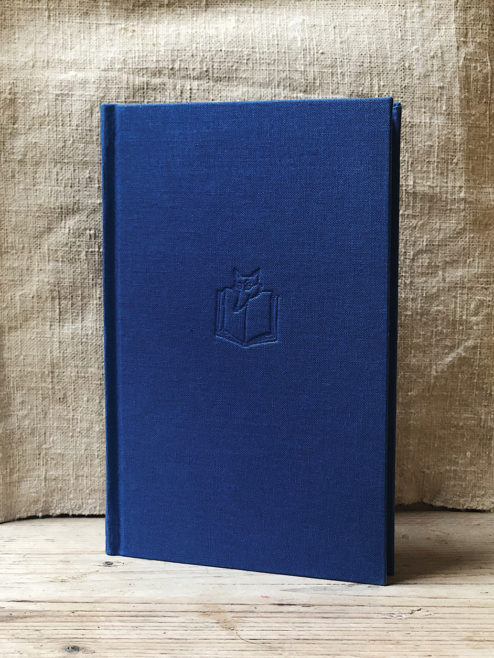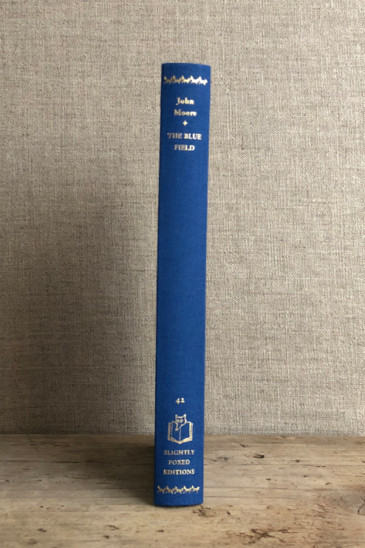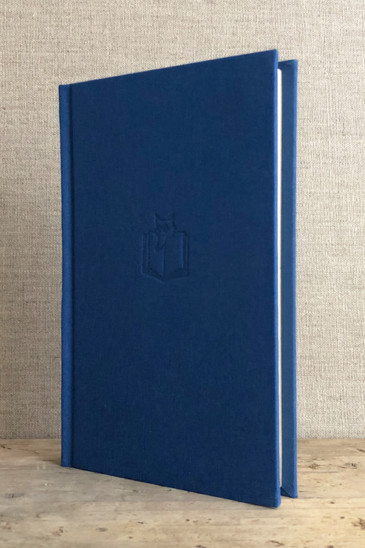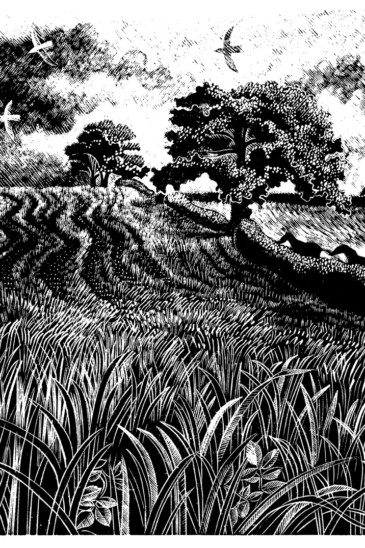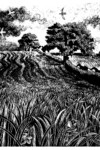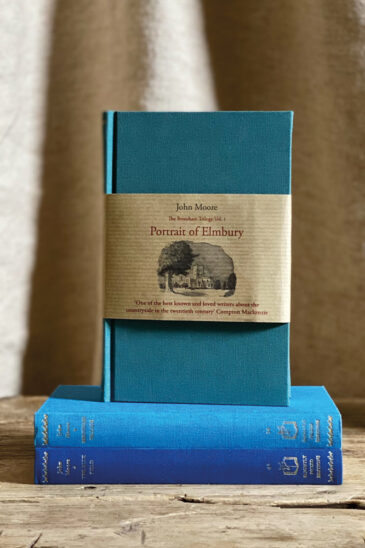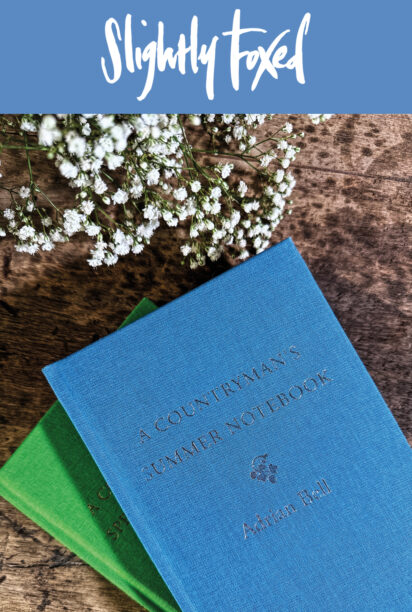‘I am going to tell you the story of a man of Brensham who was so wild and intractable and turbulent that he failed, in the end, to come to terms with our orderly world.’ And so The Blue Field, the last in John Moore’s trilogy of rural life in England, shifts the focus from town and village to a single farm and the life of its owner: William Hart.
Hart is a master wagon-maker, reveller and brewer of parsnip wine; a steadfast defender of small liberties; a self-professed descendant of Shakespeare who grows the finest Brussels sprouts in England. And he’s the man responsible for the field of linseed, grown in defiance of the War Agricultural Executive Committee, which flowers one summer morning on Brensham Hill. In the first volume of the trilogy, Portrait of Elmbury (SFE no. 26), Moore draws a vivid picture of growing up in an English country town when rural society was still self-sufficient. Brensham Village (SFE no. 34) is set in the 1930s, with change creeping in. The Blue Field brings us up to 1948, with the aftermath of the war signalling the end of this very particular way of rural life. In the touching, and often hilarious, stories of William Hart’s wild and intractable nature, Moore captures a very English sense of resistance and resilience. The old ways don’t go without a good deal of fuss.
Hart might well be the last of a dying breed, but there is nothing sentimental about Moore’s treatment of him. There are lusty summer evenings among the hedgerows, of course, but there are also frostbitten days bent double in the sprout fields. The prose is lively and quick-witted, with the glint of humour and pride that one might expect from an old local telling stories in the Horse and Harrow, Brensham’s raucous pub. The Blue Field shows us the richly textured world of which Moore was immensely fond: people with ‘poetry in their hearts and dreams in their heads – and, for much of the time, what feels like half the West Midlands on their boots’.
Sprouts and Parsnip Wine
Early one morning, late in July, the villagers of ‘crack-brained Brensham’ woke to a remarkable spectacle. There amid the customary colours of furze and wheat was a seven-acre field that ‘had...
Read more‘One of the most wonderful books I’ve ever read . . .’
‘I wanted to let you know that I ordered Portrait of Elmbury based on the review and excerpts in SF. I’ve just finished it and have to say that this was one of the most wonderful books I’ve...
Read moreEngland, Their England
At the time of writing, the town of Tewkesbury, in the north-west corner of Gloucestershire, has been cut off by the flooding of its four rivers: the Severn and Avon, at whose confluence it stands,...
Read more




